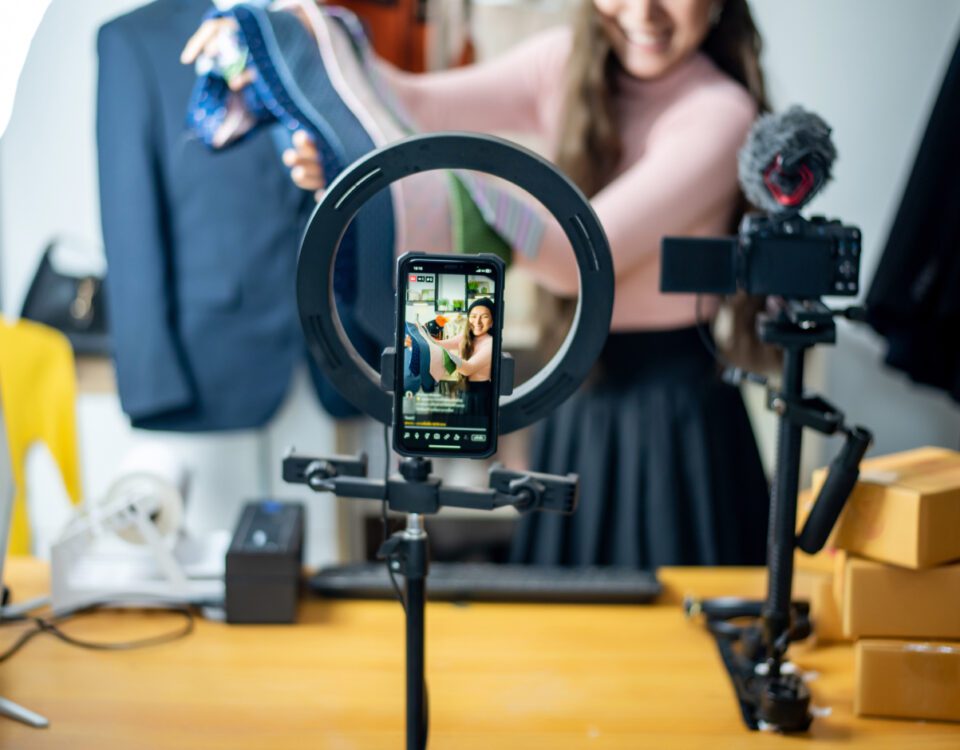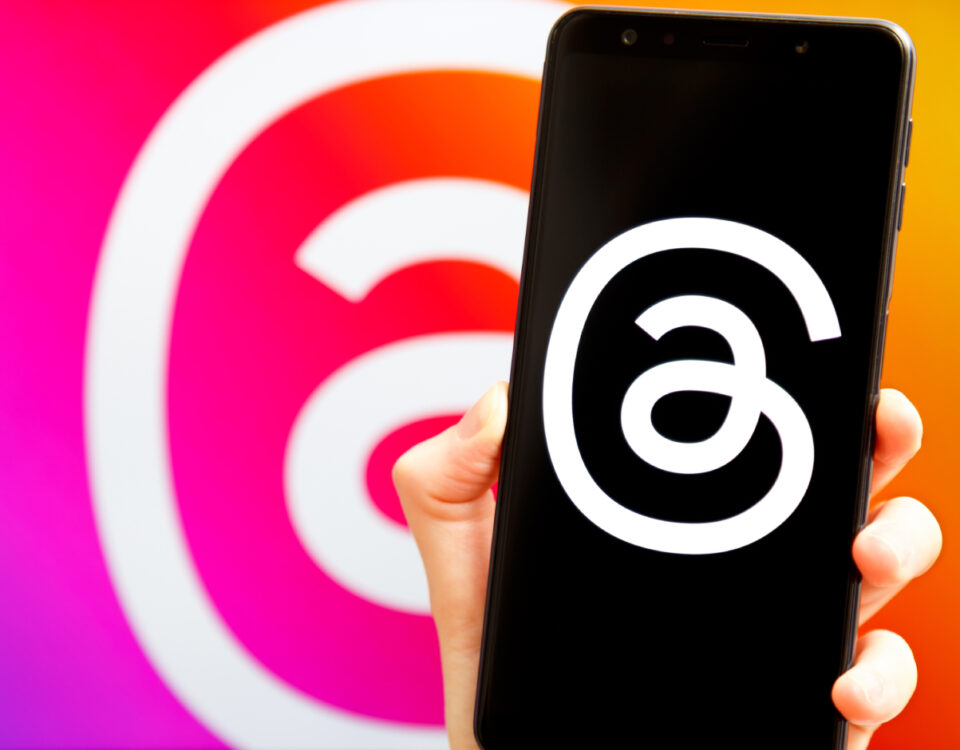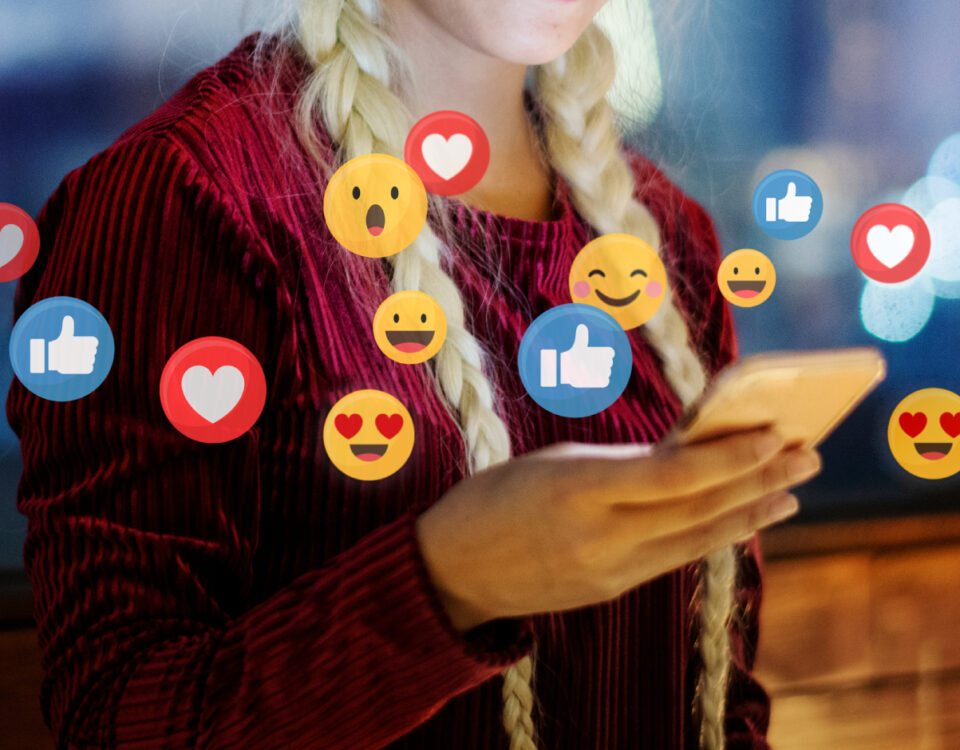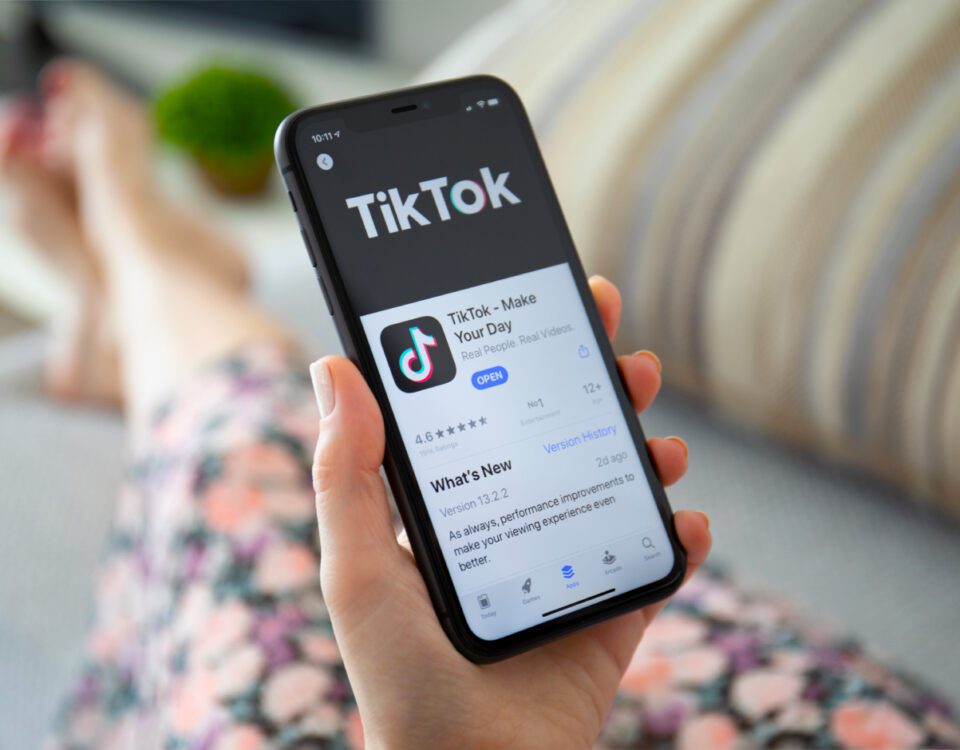
Why Your Brand Should Conduct Social Listening
Thursday 16th May
 by Beth Perrin
by Beth Perrin
Share
Social listening, which refers to the process of monitoring brand-related keywords, phrases and untagged mentions across social media, is a crucial part of community management that often gets overlooked. Remember, not everyone will tag your business directly when talking about it on social, so if you aren’t tracking your brand name and other relevant keywords, you could be missing out on opportunities to assist customers, resolve complaints, collect UGC and determine your brand sentiment. Read on to discover why you should carry out regular social listening, how to implement it into your strategy and how it can benefit your business in the long run.
How to Get Started
It’s best to use a dedicated listening tool so that you can receive an alert whenever your keywords are mentioned in a post. The majority of social media management platforms including Sprout Social, Hootsuite and Brandwatch offer this as part of their software. However, if your business doesn’t have access to one, you can also conduct social listening manually using the following steps:
1. Head to your desired platform, either on desktop or its mobile app
2. Open up the search bar
3. Enter one of your desired keywords/phrases, such as your brand name, your business location, or words relating to your industry or niche
4. Sort the results by most recent
5. Interact with any posts that present an engagement opportunity, either by liking them, responding to them, or sharing them and adding your own comment
6. Repeat on a regular basis!
Facebook also allows you to set up Keyword Alerts for Groups, so if you have a Group for your brand’s fans, you can receive notifications when specific words and phrases are used in your community.
Find Untagged Mentions
Without a social listening strategy in place, you’ll only be notified of direct mentions (aka when a user specifically tags your brand using its @username). Adding your business name to your list of tracked keywords - as well as any common misspellings or alternative nicknames - means you can keep an eye on posts that contain indirect mentions too, opening up lots more possibilities to discover what’s being said about your brand.
In the example below, the user is sharing some positive feedback and a helpful menu suggestion. However, because they haven’t tagged the restaurant’s username, this post would be missed if the restaurant isn’t tracking their indirect brand mentions through social listening.
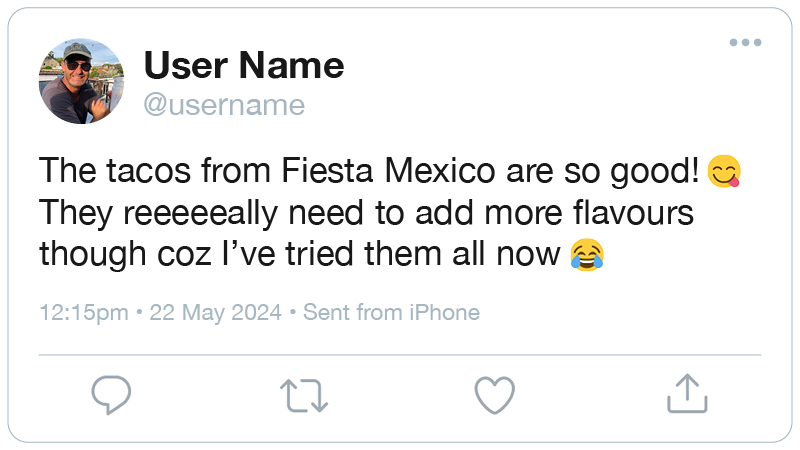

Additionally, monitoring untagged comments can help you find out if your brand is being mentioned on any social platforms on which you don’t currently have a page. For example, you may not have an Instagram account for your business, but your social listening results might reveal that lots of Instagram users are discussing your brand on the platform. This could suggest that it’s time for you to open an account and be where your fans are.
Location-Based Social Listening
Your social listening strategy doesn’t have to be limited to just keywords and phrases. For location-based businesses such as restaurants, hotels, cafés, bars, pubs, retail stores and tourist attractions, geotags are another important element to keep an eye on. These are the geographical locations you often see beside or below a person’s username on a post on social media (or as a sticker on a Story). When you click or tap on a geotag, you’ll be taken to a page where you can see all of the posts that have been tagged there, meaning you can interact with any content shared by visitors to your business location that you may not have found via regular keyword monitoring.
Geotagging is available on the following social platforms:
• Facebook (known as ‘Checking in’)
• X
UGC Collection
Finding and collecting UGC (user generated content) is another huge benefit of social listening. Regularly checking for untagged mentions and monitoring your geotag, predominantly on visual platforms like Instagram, will allow you to build a bank of photos and videos taken of your product or location, which you can then repurpose into posts for your own page. Just remember to ask permission first before downloading other users’ content, and always make sure to tag and/or credit the original poster when sharing their media.
86% of people (and 92% of Gen Z specifically) say they’ve become interested in a specific place after seeing UGC about it, so it’s a highly influential tool for enticing new customers to visit your business. Plus, sharing customers’ content makes them feel special and valued, creating a sense of collaboration and involvement with your brand.
Industry Trends & Competitor Monitoring
Your social listening process shouldn’t only include terms and phrases that are specific to your own brand - it’s important to keep track of wider industry trends too, by monitoring a selection of more general keywords that relate to your sector. Finding out what’s going on in your industry as a whole can help you implement further improvements to your business.
Social listening can also show you where your competitors’ strengths and weaknesses lie, therefore highlighting any gaps in the market for you to take advantage of. Add your competitors’ brand names and product names into your listening roster to find out what people are saying about them, then compare and contrast how people talk about your brand with how they talk about others in your industry. Are they offering products, services or experiences that you aren’t?
Crisis Detection
More than a third of businesses that have experienced an online crisis recognise that they need to do more to identify them, so if you’re lacking confidence in your current crisis detection process, you’re not alone. Social listening is a reliable way to identify the beginnings of a potential crisis, such as a customer complaint or a false allegation from an ex-employee, allowing you to step in and handle the situation before it spirals out of control and damages your brand reputation. Things can escalate quickly if there’s nobody available to take action - in fact, over 25% of crises spread internationally within just one hour, so being able to respond in the early stages can prevent negativity from snowballing into a PR disaster for your business.
Summary
In the world of social media marketing, being proactive is just as important as being reactive - and conversations about your brand are happening all the time, which is why social listening is so important. If you need a helping hand from a dedicated team of Community Management experts, check out our Social Listening service to learn how we can track all of the content that’s being posted about your business, pick up any PR issues before they gain traction and connect with prospective customers to grow your community.




